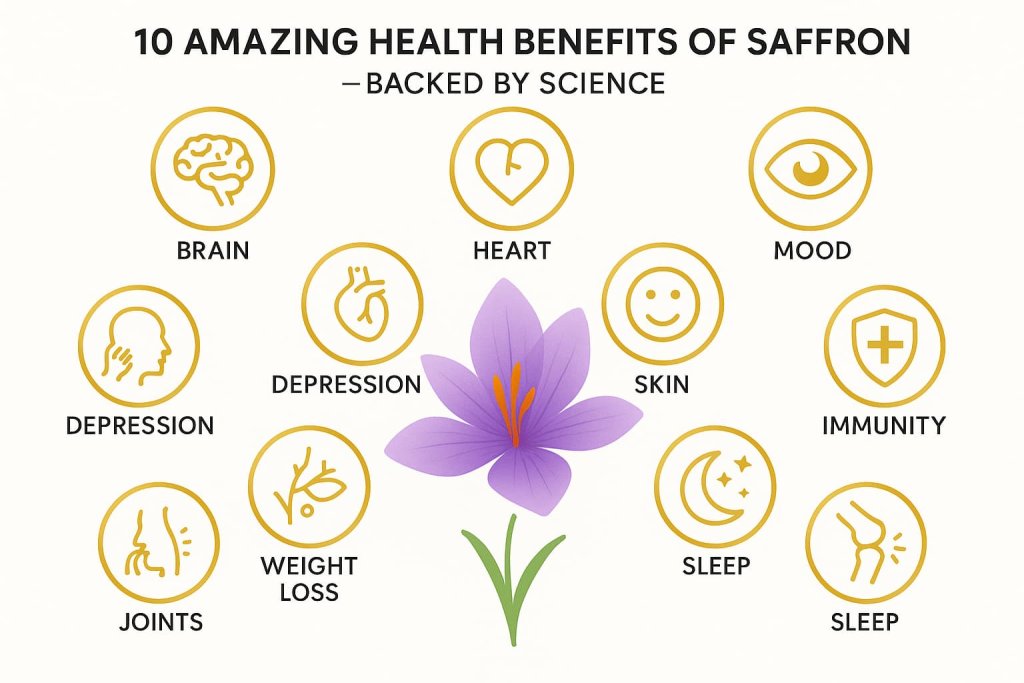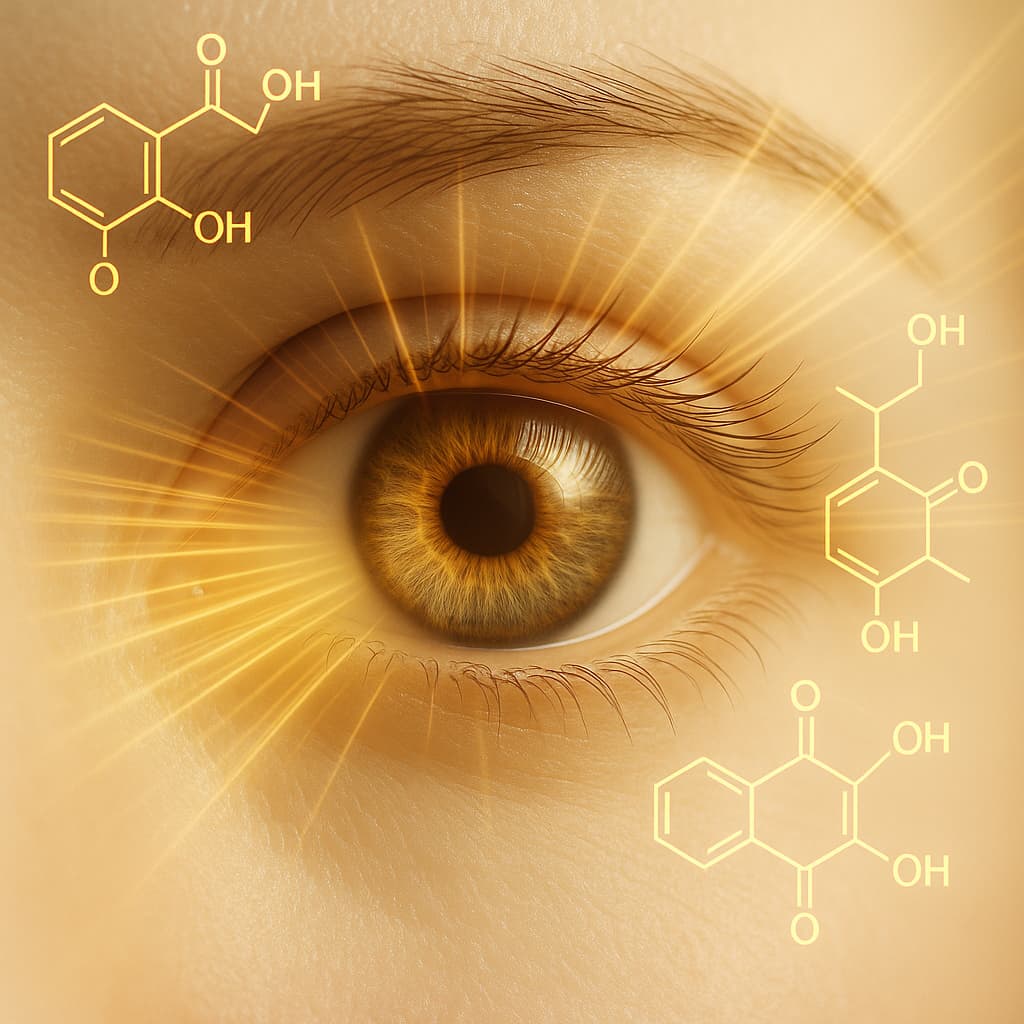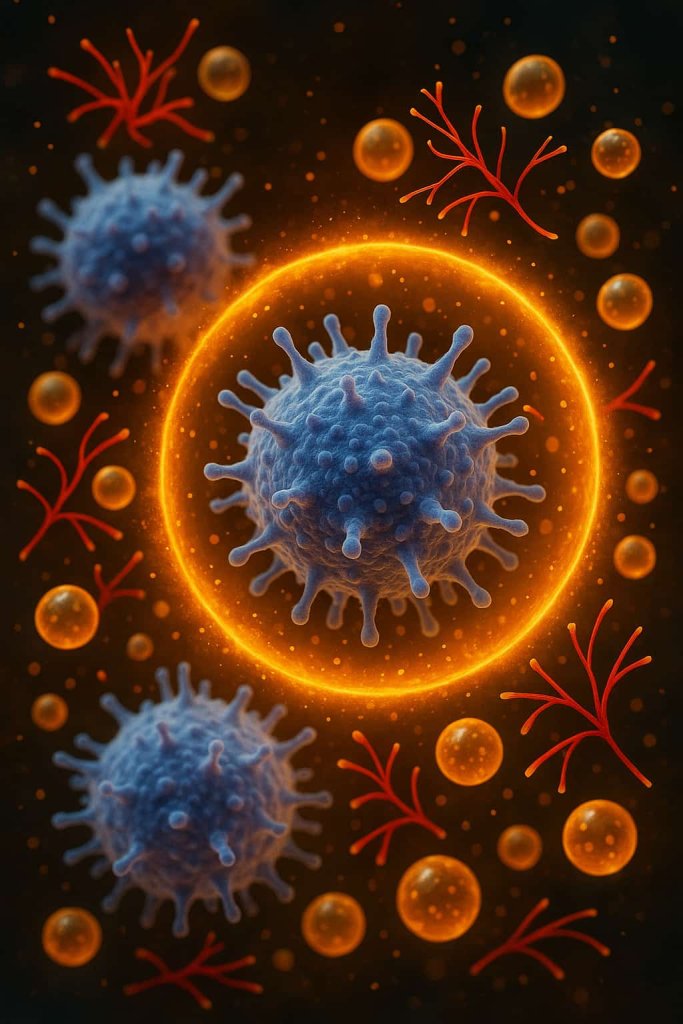Saffron is not just the world’s most expensive spice — it’s a powerful natural remedy with proven health benefits. Studies show that saffron may improve mood, support heart and brain health, and even enhance vision. Known as the “golden spice,” saffron has been treasured for centuries in traditional medicine and modern research now confirms many of its effects.

Understanding the health benefits of saffron is important for anyone seeking natural ways to improve mental well-being, immunity, and overall vitality. This article covers everything — from saffron’s key nutrients to how to use it safely and effectively — all based on the latest scientific research.
What Is Saffron? (Overview and Nutritional Profile)
Saffron (Crocus sativus L.) is derived from the dried stigmas of the saffron crocus flower. Native to Southwest Asia, it takes over 75,000 flowers to produce just one pound of saffron — explaining its premium price.
Nutritional Facts (per 100 g, USDA 2024):
- Calories: 310
- Carbohydrates: 65 g
- Protein: 11 g
- Fiber: 3.9 g
- Iron: 11.1 mg
- Potassium: 1724 mg
- Vitamin C: 80 mg

Key Bioactive Compounds:
- Crocin – antioxidant pigment responsible for saffron’s rich color.
- Safranal – provides aroma and helps regulate mood.
- Crocetin – supports heart and eye health.
- Kaempferol – promotes anti-inflammatory activity.
These compounds work synergistically to protect your body from oxidative stress and inflammation — the root cause of many chronic diseases.
10 Amazing Health Benefits of Saffron — Backed by Science
1. Boosts Mood and Fights Depression

Saffron has been dubbed the “sunshine spice” for its ability to naturally enhance mood.
A 2023 meta-analysis in Frontiers in Nutrition found saffron extracts to be as effective as certain antidepressant medications (like fluoxetine) in reducing mild-to-moderate depression symptoms — without major side effects.
How it works:
- Increases serotonin levels in the brain.
- Reduces cortisol (stress hormone).
- Supports overall emotional balance.
Clinical Dose: 30 mg per day (standardized saffron extract).
Read the full study on Frontiers in Nutrition
2. Supports Heart and Vascular Health

Saffron’s antioxidants — especially crocetin and kaempferol — promote healthy blood vessels and reduce LDL oxidation, helping prevent plaque buildup.
A 2022 review in Phytotherapy Research reported that saffron can lower total cholesterol, triglycerides, and blood pressure, supporting cardiovascular protection.
How it helps your heart:
- Enhances blood flow.
- Lowers oxidative stress in arteries.
- Supports healthy lipid balance.
Learn more from the National Institutes of Health (NIH)
3. May Improve Cognitive Function and Memory

Research shows saffron may help protect brain cells and improve cognitive performance.
A 2021 clinical trial published in Journal of Clinical Pharmacy and Therapeutics found that saffron extract improved memory and learning in adults with mild cognitive impairment, comparable to donepezil (a common Alzheimer’s drug).
Why it works:
Crocin and safranal increase acetylcholine levels and reduce neuroinflammation — key factors in memory and learning.
4. Promotes Eye Health

Saffron’s crocin compound has been found to improve retinal function and slow progression of age-related macular degeneration (AMD).
A 2023 study in Nutrients showed that daily saffron supplementation (30 mg) enhanced visual acuity and contrast sensitivity in early AMD patients.
How it benefits your eyes:
- Protects retinal cells from oxidative stress.
- Improves blood flow to the retina.
- May reduce risk of cataracts and AMD.
Source: MDPI Nutrients Journal (2023)
5. Helps Manage PMS and Menstrual Symptoms

Saffron can significantly reduce premenstrual syndrome (PMS) discomfort — including mood swings, cramps, and irritability.
A Journal of Affective Disorders study found that women who took 30 mg saffron extract daily for two cycles reported fewer PMS symptoms than those taking a placebo.
Mechanism: Balances serotonin and dopamine — neurotransmitters involved in mood and pain regulation.
6. Aids in Weight Management

Saffron extract may reduce appetite and unhealthy snacking habits.
A 2024 review in Frontiers in Pharmacology concluded that saffron helps lower body mass index (BMI) by controlling hunger and enhancing serotonin signaling.
How it supports weight goals:
- Decreases food cravings.
- Improves satiety.
- Balances emotional eating.
7. Supports Skin Health and Anti-Aging

Rich in antioxidants and carotenoids, saffron helps neutralize free radicals that contribute to premature aging.
Topical use or oral supplementation has been shown to:
- Improve skin tone and elasticity.
- Reduce acne inflammation.
- Brighten dull skin.
Pro tip: Mix a few strands of saffron with honey or milk for a natural face mask.
See Healthline’s overview on saffron benefits
8. May Improve Sleep Quality

Saffron may promote relaxation and help manage insomnia.
A 2022 study in Nutrients found that participants who took 14 mg saffron extract before bedtime experienced improved sleep duration and quality.
Mechanism: Safranal interacts with GABA receptors, promoting calmness and reduced anxiety.
9. Boosts Immunity and Reduces Inflammation

Saffron’s potent antioxidant and anti-inflammatory compounds — crocin, crocetin, and safranal — help strengthen immune defense and reduce chronic inflammation.
A 2019 review published in the Iranian Journal of Basic Medical Sciences reported that Crocus sativus L. (saffron) and its bioactive constituents can modulate immune function and inhibit inflammatory pathways by downregulating cytokines like TNF-α, IL-1β, and IL-6, and blocking the NF-κB signaling pathway — a key driver of chronic inflammation.
(Source: Immunoregulatory and anti-inflammatory properties of Crocus sativus – PMC)
More recently, a 2023 study in Nutrients (MDPI) found that saffron extract supplementation enhanced antioxidant enzyme activity and reduced oxidative stress markers, helping to protect cells from damage and support balanced immune responses.
(Source: Nutrients Journal – Crocus sativus L. Extract (Saffron) Effectively Reduces Oxidative Stress and Inflammation)
How Saffron Supports Immunity:
- Reduces oxidative stress: Neutralizes free radicals that damage immune cells.
- Lowers inflammation: Inhibits NF-κB activation and decreases inflammatory cytokines.
- Strengthens immune balance: Enhances antioxidant defenses (glutathione, catalase).
Together, these effects make saffron a powerful natural immune booster, supporting your body’s defense against infection, inflammation, and oxidative damage.
10. May Support Sexual and Reproductive Health

Clinical trials show saffron can enhance libido and fertility in both men and women.
A 2022 meta-analysis in Journal of Ethnopharmacology confirmed saffron’s positive effects on erectile function and sexual satisfaction.
Possible benefits:
- Increases blood flow.
- Balances sex hormones.
- Reduces stress-induced sexual dysfunction.
How to Use Saffron for Best Results
To enjoy saffron’s benefits safely and effectively, the key is proper dosage, quality selection, and preparation. Saffron is potent in very small amounts — a few strands can make a meaningful difference when used consistently.
Here’s how to incorporate it correctly into your diet or supplement routine:
1. Culinary Use (Traditional and Everyday Method)
- Serving size: Use 3–5 saffron threads per serving (roughly 10–15 mg).
- Activation tip: Soak the threads in warm water, milk, or broth for 10–15 minutes before adding to dishes. This helps release crocin and safranal — the key bioactive compounds.
- Best combinations:
- Add to rice, soups, stews, or tea.
- Pair with milk or honey for added antioxidant synergy.
- Frequency: Safe for daily culinary use in small quantities.
2. Saffron Tea or Milk Drink
A soothing traditional option that supports mood and sleep.
How to prepare:
- Boil 1 cup of water or milk.
- Add 3–4 saffron strands and let steep for 10 minutes.
- Optionally mix with cardamom, cinnamon, or honey.
Best time: Evening or before bedtime to promote calmness and better sleep.
3. Supplement Use (Clinical Form)
If using standardized saffron extract:
- Recommended dose: 30 mg per day (per Frontiers in Nutrition, 2023).
- Duration: Most studies lasted 8–12 weeks safely.
- Form: Capsules or tablets standardized to 2% safranal and 3% crocin.
- Tip: Choose ISO-certified saffron extract brands (like Affron® or Satiereal®).
4. Storage and Handling Tips
- Keep in an airtight glass jar, away from moisture, heat, and sunlight.
- Store in a cool, dark place to preserve aroma and potency.
- Shelf life: Up to 2 years if stored correctly.
Pro Tip: Always start with small amounts and monitor for any sensitivity — saffron’s potency makes “less more.”
Possible Side Effects and Precautions

Although saffron is generally safe in culinary or supplement doses, high or unregulated intake can cause adverse effects. Because it affects mood and blood chemistry, understanding the precautions is vital for safety and YMYL compliance.
1. Potential Side Effects (Usually from High Doses)
- Dizziness, nausea, or dry mouth.
- Drowsiness or overstimulation in some individuals.
- Skin allergic reactions (rare).
- High doses (>1.5 g/day) can be toxic.
2. Medication Interactions
- Antidepressants (SSRIs, MAOIs): May amplify serotonin effects and increase risk of serotonin syndrome.
- Blood pressure or heart medications: Saffron may slightly lower blood pressure.
- Sedatives: Additive calming effects possible.
Always consult your healthcare provider before starting supplements.
3. Pregnancy and Breastfeeding
Pregnancy:
While saffron is safe when used in small culinary amounts, high doses (above 1 g per day) may not be safe during pregnancy. Studies suggest that large supplemental doses could stimulate uterine contractions and increase the risk of premature labor. Therefore, pregnant women should avoid saffron supplements unless specifically recommended by their healthcare provider.
For flavoring foods like rice, tea, or milk, however, using a few strands (5–10 mg) is considered safe and widely practiced in many cultures.
Breastfeeding:
There is limited scientific data on saffron’s safety during breastfeeding. However, normal dietary intake (in small culinary amounts) appears safe and is not known to cause adverse effects in nursing infants.
Until more research becomes available, healthcare experts advise avoiding high-dose saffron supplements while breastfeeding.
Key Safety Tips:
- Use saffron only in small food-based quantities during pregnancy or lactation.
- Avoid capsules or extracts exceeding 30 mg/day unless prescribed.
- Always consult a healthcare professional before using herbal supplements during pregnancy or nursing.
References:
WebMD – Saffron: Uses, Side Effects, and Warnings
4. Pre-Existing Conditions
- Low blood pressure: Monitor regularly; saffron may reduce BP slightly.
- Mood disorders: Discuss dosage with a doctor if you’re on antidepressants or antianxiety drugs.
Frequently Asked Questions (FAQ)
1. How much saffron can I take daily?
Most studies recommend 30 mg of standardized extract per day or 3–5 strands in food. Higher doses offer no extra benefit and may cause side effects.
2. Can I drink saffron milk every day?
Yes. One cup of saffron milk or tea daily is safe for most adults. It can help with sleep, mood, and digestion.
3. Is saffron safe during pregnancy?
Yes, in culinary amounts only. Avoid supplements unless prescribed by a doctor.
4. How long does it take to see saffron’s effects?
Most people notice results — improved mood, sleep, or skin tone — within 4–6 weeks of consistent use.
5. Can saffron interact with my medication?
Yes. It may interact with antidepressants, sedatives, or blood thinners. Always talk to your healthcare provider before combining them.
6. What’s the best time to take saffron supplements?
Morning or early evening with food works best; consistency matters more than timing.
7. Can children take saffron?
Small culinary doses are safe, but supplements should only be used under pediatric guidance.
Conclusion
Saffron is far more than a luxury spice — it’s a clinically supported natural aid for mood, heart, skin, and eye health. Used wisely, it can enhance physical and emotional well-being without major side effects.
For best results:
- Use small, consistent doses (3–5 threads daily or 30 mg extract).
- Choose ISO-certified saffron for purity and safety.
- Avoid overuse and always consult a healthcare professional before combining with medication.
Incorporate saffron into your meals or wellness routine today — and experience the golden spice’s science-backed benefits for your mind and body.
References
- Frontiers in Nutrition – Effects of Saffron Extract on Mood and Depression (2021)
Peer-reviewed clinical study showing that saffron extract significantly improved mood and reduced depressive symptoms — comparable to common antidepressants, but with fewer side effects. - Nutrients (MDPI) – Therapeutic Potential of Saffron in Eye and Brain Health (2023)
Comprehensive review highlighting saffron’s neuroprotective and vision-enhancing properties, including crocin’s benefits for retinal health and cognitive performance. - WebMD – Saffron: Uses, Side Effects, and Interactions (Updated 2025)
Authoritative medical overview on saffron safety, dosage limits, pregnancy precautions, and potential drug interactions — essential for YMYL compliance.
